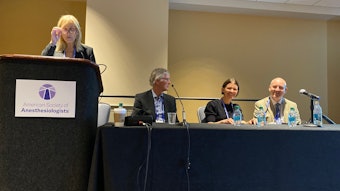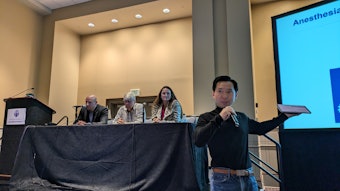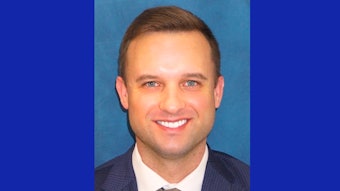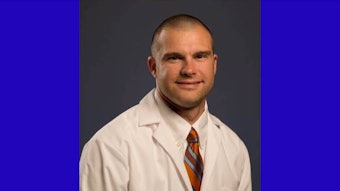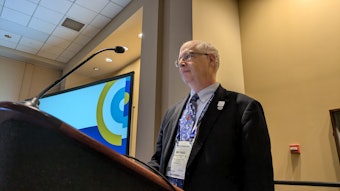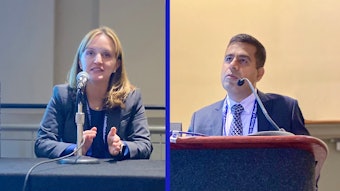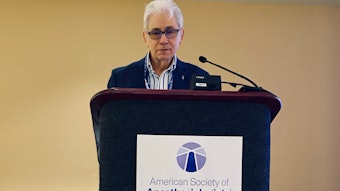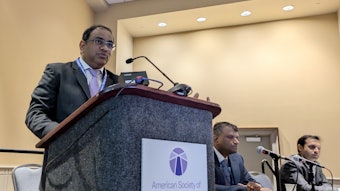Stop. Think. Prescribe.
Systemic changes to reduce hospital medication errors.
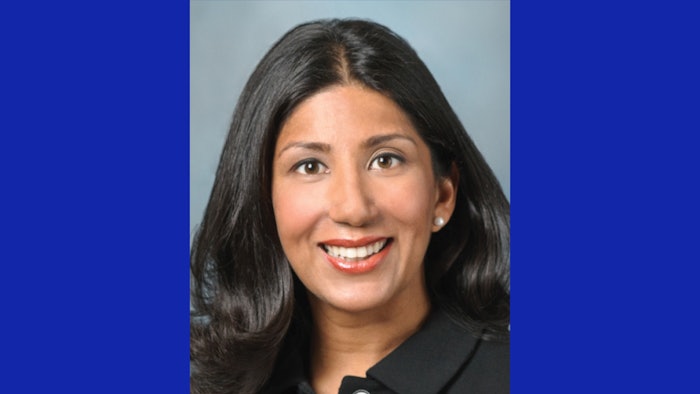
Medication errors in the perioperative environment can be attributed to myriad factors, including distractions, inadequate training, and burnout. Unfortunately, those issues only scratch the surface of what can lead to medication errors, according to Elizabeth Rebello, MD, FACHE, FASA, CPPS, CMQ, Professor and Executive Director of Anesthesiology, Critical Care, and Pain Medicine in the Department of Anesthesiology and Perioperative Medicine at the University of Texas MD Anderson Cancer Center in Houston.
“Fatigue can include burnout and a heavy workload,” she said. “Distractions and interruptions during medication preparation and administration can lead to mistakes. Inadequate training or lack of experience can result in improper handling of medications. And environmental factors such as poor lighting, noise, and cluttered workspaces can contribute to errors.”
Those causes – and their potential solutions – headlined the discussion in the 2024 session, “Medication Errors in the Perioperative Environment — Exploring the Role of Human Factors.”
Dr. Rebello said there are many cognitive factors that can contribute to medication errors, including lapses in attention or memory, impaired decision-making due to cognitive overload, and a lack of situational awareness. However, she said communication and teamwork can go a long way toward alleviating those problems.
“Effective communication between health care professionals is essential for coordinating care,” she said. “A culture that encourages teamwork and open communication can help identify potential errors before they occur.”
There are also mechanisms such as standardizing medication procedures and protocols that can reduce medication errors in the OR. These can include feedback and constraint mechanisms, such as bar coding, prefilled syringes, and restricting access in the automated dispensing cabinet for certain medications.
Technology can also play a crucial role in controlling errors in medication distribution, Dr. Rebello said.
“Specifically, technology can improve interoperability between electronic health records and the automated dispensing cabinet,” she said. “Another new area is smart pumps: Infusion pumps with built-in safety features and standardized pump libraries can prevent dosing errors in intravenous medications. And decision support systems can provide real-time support for clinical decision-making, including alerts for potential medication errors.”
Beyond technology, Dr. Rebello said there are other protocols hospitals can establish to help better manage the flow of medication in the perioperative environment, such as reporting systems and peer support.
“Implementing non-punitive reporting systems for medication errors can help identify patterns and areas for improvement,” she said. “In addition, a peer support program that is timely and confidential is important in reducing medication errors. Having a culture of safety for the health care professional is instrumental for safe patient care.”
